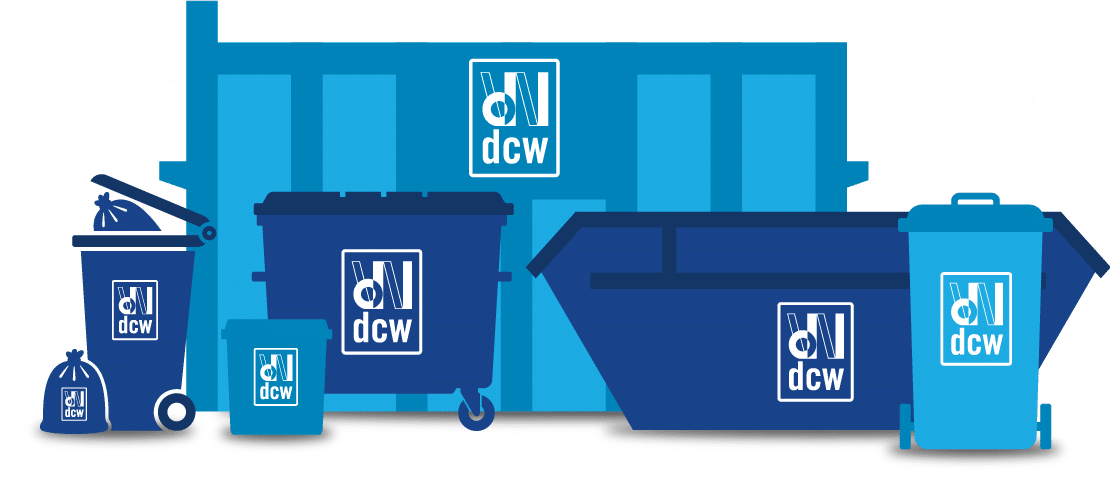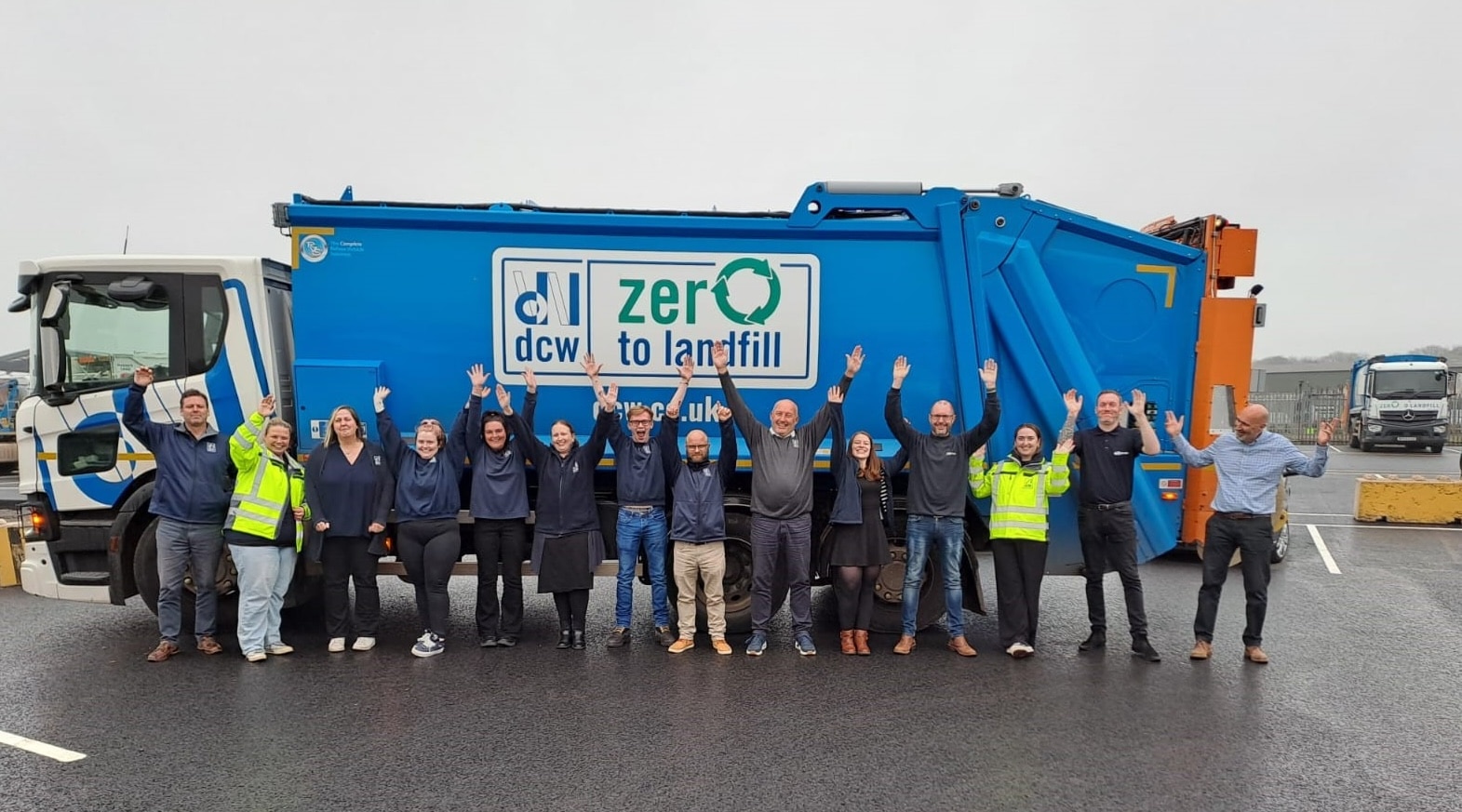Small Business Waste Guide
Waste management for small businesses can present many challenges but also many opportunities; utilising leading services and solutions can streamline processes and boost efficiency.
In the UK, commercial waste management is a critical aspect of running a successful business. It not only ensures a clean and safe working environment but also contributes to a sustainable future. This guide will provide you with a comprehensive understanding of commercial waste management, its benefits and effective strategies for waste reduction and recycling within small businesses.


Commercial Waste Management in the UK: Key Facts and Figures
In the UK, businesses produce millions of tonnes of commercial waste each year. According to the Department for Environment, Food and Rural Affairs (DEFRA), the UK generated approximately 40.4 million tonnes of commercial and industrial waste in 2020, as well as generating 59.4 million tonnes of construction and demolition waste. Finally, UK biodegradable municipal waste (BMW) sent to landfill decreased from 6.7 million tonnes in 2021 to 6.3 million tonnes in 2022.
The UK has made significant progress in managing commercial waste. For instance, service providers like us, we process over 150,000 tonnes of waste each year, with zero waste going to landfill. We offer a single-stream recycling service, which means businesses do not need to sort their waste – everything is sorted at our recycling facility.
Commercial Waste Management Strategies
- Waste Audits: A waste audit involves analysing the waste generated by your business to understand what types and quantities of waste you produce. This information can help you identify opportunities for waste reduction and recycling.
- Waste Reduction: Waste reduction, also known as waste prevention, involves strategies to reduce the amount of waste produced by your business. This can include purchasing policies that prioritise durable, reusable, or recyclable products and process changes that improve efficiency and reduce waste.
- Recycling: In 2022, the recycling rate for England was 43.4%. Recycling involves converting waste materials into new products. This not only reduces the demand for new materials but also decreases waste disposal costs and environmental impact.
- Training and Education: Educating employees about waste management can encourage them to adopt practices that reduce, reuse, and recycle waste. This can include training on correct disposal methods, the importance of waste management, and the use of recycling facilities.
- Professional Waste Management Services: Hiring a professional waste management service can ensure that your waste is managed efficiently and compliantly. These services can provide tailored solutions to meet your business’s specific waste management needs. Selecting a service that also has an emphasis on sustainability can help you in achieving your business waste goals.
Selecting a Commercial Waste Collection Service
For small businesses, managing waste effectively is a crucial part of operations. One aspect that can significantly impact the efficiency and cost-effectiveness of this process is the flexibility of waste collection services.
The waste generation pattern of every business is unique. Some businesses generate more waste on certain days of the week or at certain times of the year. Therefore, a one-size-fits-all approach to waste collection may not work for all businesses. Flexible waste collection services allow businesses to tailor waste services to suit their specific requirements. This could include scheduling collections at convenient times or arranging for additional collections during busy periods. At DCW we work with you to understand your business’s needs and then put together a service package that is flexible and tailored to you.
Benefits of Flexible Waste Collection Services
Cost-Effective: Flexible waste collection services can be more cost-effective as you only pay for the services you need. For example, if your business generates less waste during certain periods, you can reduce the frequency of collections to save money.
Improved Efficiency: By scheduling waste collections at convenient times, you can ensure that waste does not accumulate and interfere with your business operations.
Better Waste Management: Flexible services can also support better waste management practices. For example, you could schedule separate collections for different types of waste to improve your recycling rates.
Adaptability: Flexible waste collection services can adapt to the changing needs of your business. Whether you’re expanding, downsizing, or just going through a busy period, flexible services can adjust to meet your needs.
Choosing the right waste collection service can make a big difference to your business.
Here are some tips to help you make the right choice:
Understand Your Waste Needs: Before you can choose a waste collection service, you need to understand your waste needs. This includes the types of waste your business produces, the volume of waste, and how often you need collections.
Research Providers: There are many waste collection services available, so it’s important to do your research. Look for providers that offer the flexibility you need, such as adjustable collection schedules or ad-hoc collections.
Check Credentials: Make sure the provider you choose is licensed and compliant with all relevant regulations. This will ensure that your waste is handled legally and responsibly..
Consider Customer Service: Good customer service is crucial. The provider should be responsive and able to address any issues or concerns promptly.
Compare Costs: Costs can vary between providers, so it’s important to compare prices. However, don’t just go for the cheapest option – make sure the provider can meet all your waste needs.
Ask for Recommendations: If you know other small business owners, ask them for recommendations. They may be able to suggest a provider that they’ve had a good experience with.
Efficient Commercial Waste Organising Tactics for Small Businesses
1. Identify Your Waste
The first step in organising your business for efficient waste management is to identify the types of waste your business produces. This could include paper, food waste, packaging materials, electronic waste, and more.
2. Implement Waste Reduction Strategies
Once you’ve identified the types of waste your business produces, the next step is to implement strategies to reduce this waste. This could involve using fewer and more sustainable materials for packaging, reducing food and paper waste, or finding someone who can use things you no longer need.
3. Work With Suppliers
A great way to reduce waste is to ensure it never reaches your business in the first place. Work closely with your suppliers to eliminate unnecessary packaging and to implement returnable packaging systems.
4. Set Up a Waste Collection System
Setting up a waste collection system in your business can help to ensure that waste is disposed of properly. This could involve setting up separate bins for different types of waste, scheduling regular waste collections, and educating employees about proper waste disposal.
5. Consider Waste Recycling
Recycling is an important part of waste management. By sending all waste for recycling and zero to landfill, you can significantly reduce your business’s environmental impact.
6. Avoid Fines
By properly managing your waste, you can avoid fines and penalties associated with improper waste disposal. Make sure you’re aware of the waste disposal regulations in your area and ensure your business is compliant.
Small Business Waste Management Key Takeaways
- Audit your waste, or work with a service provider to do this.
- Identify which strategy and actions will best suit your business’s waste requirements.
- Research waste collection service providers and speak with them to explore how they can support you.


